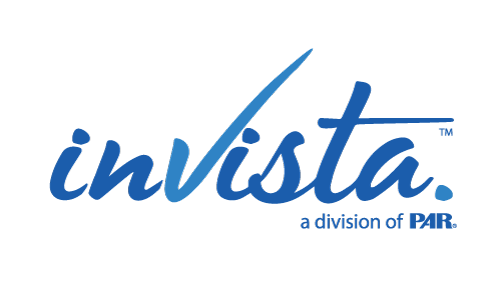Organizational justice perceptions are critical for both organizations and individuals. But how can organizations improve perceptions of all three forms of justice within the workplace?
Four ways to improve distributive justice
To change distributive justice perceptions, you must show that the process to receive the rewards and the reward are consistent and fair across different groups of employees.
1. Clearly define and communicate the projected career path of each role within your organization as early as possible. This will help you minimize employees’ frustration when they are passed over for a promotion and help clarify what their future looks like at the company. Providing this clarity up front also gives employees the opportunity to preview what their career within the organization will look like and give them an opportunity to switch roles if their current path doesn’t align with their own career goals.
2. Anchor rewards, projects, and promotions to concrete behaviors, and document those behaviors. Acknowledge desired behaviors with your employees and make it clear to them why they received (or did not receive) rewards. In this way, feedback is tied to behaviors instead of to individuals, increasing the chance that reward criteria will be perceived as fair.
3. Provide transparency in performance review, development, training, and promotion processes. In particular, when processes are linked to valued employee outcomes, ensure the path to these outcomes is clear and consistent. Informing your employees how rewards such as bonuses are determined and how they can meet the criteria helps them understand what steps they need to take if they desire those outcomes. In addition, focus is shifted off decision makers.
4. Track it. In order to ensure your organization is fairly distributing resources, put a system in place to track the frequency of raises, time off, and promotions for your employees. Analyze the data you collect by demographic, including tenure, gender, race, and age. If there are discrepancies, work to understand why they exist and whether you need to make a change.
Improving interactional justice: two key steps
This form of organizational justice is centered around the relationships and conversations that are present in the workplace. In order to have strong interactional justice perceptions, respect and effective communication must exist between parties.
1. Learn how to have effective “tough talks” with your employees. One way to create trust in work relationships is being honest in communication. This can be easy when giving praise, but it’s challenging when an employee is passed over for rewards. Although it may feel like you’re harming your relationship by telling them where they fell short, it’s a critical step in creating and maintaining trust. When you don’t have these tough conversations, it leaves the employee wondering why they were passed over and causes them to make their own assumptions, creating a mistrust in the relationship. But how can you make tough talks easier? Prepare for the conversation by drafting your goals for the discussion.
- Plan in advance when and where you will have the meeting. When possible, meet face to face, and allow sufficient time for the meeting. Send the employee a meeting invite that clarifies the meeting objectives so they have time to prepare.
- During the conversation, restate your intent for the meeting, focus on shared objectives, reference observable behaviors, and ask for input from your employee.
- Help the employee create a plan to accomplish their goals. Provide resources when necessary and schedule a follow-up conversation to see how they are progressing.
2. Explain decisions and changes that impact your employees. When policy or procedure changes happen, it’s important employees know the reasoning for the change, how it will impact their work, and who to contact if they have questions. It also needs to be made clear how the change will benefit them to help solidify the change and ensure they will follow it. Employees are more accepting of changes when leaders educate them on the problem they’re trying to solve.
Related article: Three big factors contributing to your employees’ perceptions of fairness
Two easy ways to improve procedural justice
Similar to distributive justice, procedural justice is focused on rewards. However, it’s concerned with the way in which rewards are decided, not the reward itself. In order to create and maintain fairness of these processes and positively impact employees’ perceptions of decisions, organizations can do the following.
1. Re-evaluate and continuously reinforce procedures that relate to employee rewards such as those for flexible hours, paid time off (PTO), and bonuses.
- If you find a policy to be outdated or disproportionately catering to a specific group of employees without providing benefits for others, edit the policy to make it more equitable.
- Frequently educate your leadership team and remind your employees of organizational policies. When there is a change, make sure all areas of the business are aware as soon as possible.
- When evaluating managers’ performance, consider how well they follow and apply the reward process and distribute rewards. This will help to ensure your leadership is held accountable to make equitable decisions based on policy. It can also help identify whether any managers need further education.
2. Allow employees to help make procedures. When organizations are able to include employees in decisions that affect their work, employees will feel like they are provided a voice and, in turn, some control over decisions that affect them. They’re also more likely to accept and perceive the process as fair because they were involved in its creation.
Perception is reality!
Employees’ perceptions of fairness, regardless of organizational intention, constitutes their reality. These perceptions can have a real impact on their workplace and personal wellbeing. Because there are so many implications of fairness perceptions in organizations, it’s important to create and maintain a culture that values equitable treatment of all employees. This is a matter of ethical business practices as much as key organizational outcomes. Consider this a starting point and be aware that creating and maintaining fairness takes commitment from the entire organization. When organizations focus on the perceptions, they can change the reality.
For a FREE, complete guide on how organizational justice affects your organization, click here.


Recent Comments